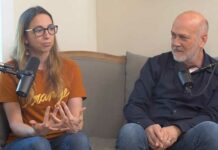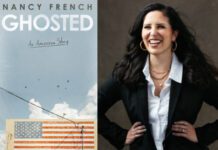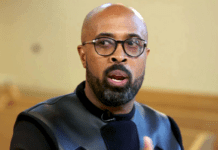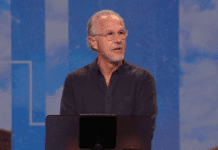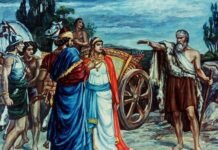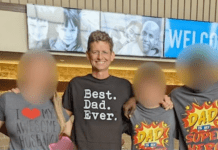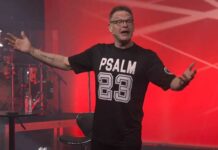“These amazing people love the U.S.A. and have a genuine desire to work together for the betterment of all Americans,” Trump said. “I appreciate their prayers and am encouraged by their great faith.”
After saying that he considers himself a non-denominational Christian, which came in response to the question, “Do you consider yourself an evangelical Christian?” the president turned the discussion from his personal faith to his admiration for his evangelical advisers’ willingness to reopen their churches in the face of the pandemic. They “are passionate about America’s traditional values and want our churches to be open,“ he said.
“Thankfully, many great churches are now back open and meeting in person,” he wrote, seemingly ignoring that multiple COVID-19 outbreaks have occurred at houses of worship, including a recent “superspreader” event that took place this month at a church in Maine.
The remainder of the interview revolved around policy questions that impact religion.
The White House declined to respond to questions that dealt with Trump’s former pastor Norman Vincent Peale, criticism from faith groups regarding his treatment of immigrants and whether the president has any response to detractors who decry his travel ban as discriminatory against Muslims and argue that he has privileged evangelicals over other faith groups.
The White House also declined to answer a question asking how the president would respond to those who say that his administration’s drastic reduction in refugees admitted to the U.S. — including Christians from nations where they encounter persecution — has broken a 2017 promise to “help” persecuted Christians in places such as Syria. Instead, the press office said they preferred to address what the administration has done for persecuted Christians around the world.
On this subject, Trump pointed first to his administration’s successful negotiation two years ago to return American pastor Andrew Brunson to the U.S. after he was imprisoned in Turkey.
The president then gave a wide-ranging account of what he said was his administration’s commitment to religious freedom, including sanctioning Cuba and Venezuela “because they don’t respect religious freedom,” and touting the State Department’s Ministerial to Advance Religious Freedom, held in 2018 and 2019, as “the largest human rights event in history.”
Trump also recalled the event on religious freedom he hosted during last September’s United Nations General Assembly in New York. “In my speech, I reminded the world’s leaders that our rights do not come from government, they come from God — and I explicitly called upon the nations of the world to end religious persecution,” he wrote.
“I followed that event with an Executive Order on Advancing International Religious Freedom,” he continued, “that solidified America’s own commitment to this critical issue, by naming it as a foreign policy priority of the United States and promising that we will respect and vigorously promote this freedom.”






